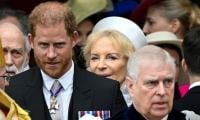Ex-Brigadier gives "real reasons" for BB’s 1990 govt’s dismissal
ISLAMABAD: One of the major reasons of Shaheed Mohtarma Benazir Bhutto’s government’s dismissal in 1990 was her statement when she publicly stated that Pakistan Army crossed the red line by enriching uranium to the levels which were not acceptable to big powers.
This was claimed by Sindh MI former chief Brigadier (R) Hamid Saeed Akhtar while talking to The News. “Rampant corruption, police operation of Pucca Qila, Karachi operation were the obvious reasons but the slain PPP leader’s government was dismissed by former president Ghulam Ishaq Khan on several other grounds which I cannot even mention,” he informed.
He said when Ghulam Ishaq Khan was presented undeniable evidence against Mohtarma Benazir Bhutto, the then former president directed the authorities concerned to hold a briefing for her. However, things did not go well after which the former president had to invoke Article 58(2)B.
“I submitted a written statement before the Supreme Court of Pakistan in which I have cited the reasons why the politicians were distributed the money. The honourable judges of the apex court after reading my statement remarked that first nine paragraphs of my statement are irrelevant to the case therefore I can claim the confidentiality for these paragraphs. However, I explained the apex court that if these paragraphs are not made part of my statement, the whole purpose of my statement would not be conveyed. Hence my statement was made part of the case”, informed Brig (R) Hamid.
According to Brigadier (R) Hamid’s statement submitted before the Supreme Court of Pakistan, in 1990 he was commanding an Artillery Brigade in D I Khan, in the same year following an indigenous uprising of Kashmiris in the Indian Held Kashmir, both India and Pakistan deployed their forces in the border areas. His brigade had just reached the border area when he received the orders to join regional office of Military Intelligence in Karachi. He talked to the Corps Commander and submitted that he wished to be with his troops during combat. He further pleaded that he had no intelligence background or formal training. Corps Commander advised that his services are very urgently required in Karachi to control the deteriorating security situation in Sindh. Accordingly, he reported to his new duty station and assumed command w.e.f July 23, 1990.
“At that time MQM had recently fallen apart from the ruling political party (PPP). PPP workers had resorted to taking revenge on MQM for their political betrayal through the use of force. MQM reacted even more violently, through their armed political workers. PPP, MQM, PPI, JI and JSM activists were relentlessly killing one another. The daily death toll was 100-110 besides countless left wounded and incapacitated. PSF, APMSO, IJT and JSQM had taken prisoners the activists from their rivals and committed horrendous and inhuman atrocities on them e.g. drilling holes in knee joints with the drill machines and burning their delicate parts with electric soldering machines. I immediately held meetings with Tariq Azeem, Dr Imran Farooq and Saleem Shahzad of MQM, Prof Ghafoor of JI, Dr Hameeda Khoro and Mumtaz Bhutto of JSF, Abdul Wahid Aresar of JSQM and Mukhtar Awan of PPI and gave them strong message that if they did not stop killing, arson and looting, army might be forced to step in to restore peace”, says Brigadier (R) Hamid.
The statement further says that initially the belligerent forces denied their involvement in the unlawful activities, however when irrefutable evidence of their crimes was produced, they took the advice more seriously. Following were the visible effects of intelligence intervention on security situation: (A) Within one week killing reduced drastically from 100-110 to 20-30 per day, (B) Exchange of prisoners of the belligerent sides was arranged and the exchange took place in Karachi Corps Headquarters.
“All the above was achieved through negotiations and dialogue, not a single bullet was fired, nobody was kept in illegal confinement and no torture was committed to extract information. The importance of my primary task i.e. intelligence and counter intelligence for outweighed my involvement in the internal security matters but at that time internal security had assumed greater importance”, says the retired brigadier in his statement.
The statement further says that soon after, the provincial government launched a police operation against Mohajir populace residing in Pucca Qila, Hyderabad on a day when PM, COAS and Karachi Corps Commander were on a tour abroad and army units were out on annual exercise. In this operation police killed dozens of men, women and children. The matter was reported to higher echelons. President Ghulam Ishaq Khan ordered the army to move in and stop this carnage. Station Commander, Hyderabad gathered about three hundred soldiers from the personnel left behind for guard duties and reached the site.
-
 Eric Dane’s Friends Initiate GoFundMe To 'support' His Two Daughters After His Death At 53
Eric Dane’s Friends Initiate GoFundMe To 'support' His Two Daughters After His Death At 53 -
 Internet Erupts After Candace Owens Claims Elon Musk And Sam Altman Are ‘not Human’
Internet Erupts After Candace Owens Claims Elon Musk And Sam Altman Are ‘not Human’ -
 Will Princess Beatrice, Eugenie Stay In Contact With Andrew? Source Speaks Out
Will Princess Beatrice, Eugenie Stay In Contact With Andrew? Source Speaks Out -
 ‘AI Revolution Is Coming Fast & US Has No Clue,’ Bernie Sanders Warns Of Speed Of Disruption
‘AI Revolution Is Coming Fast & US Has No Clue,’ Bernie Sanders Warns Of Speed Of Disruption -
 Hong Kong Touts Stability,unique Trade Advantages As Trump’s Global Tariff Sparks Market Volatility
Hong Kong Touts Stability,unique Trade Advantages As Trump’s Global Tariff Sparks Market Volatility -
 ‘Miracle On Ice’ Redux? US Men Chase First Olympic Hockey Gold In 46 Years Against Canada
‘Miracle On Ice’ Redux? US Men Chase First Olympic Hockey Gold In 46 Years Against Canada -
 Friedrich Merz Heads To China For High Stakes Talks In An Effort To Reset Strained Trade Relations
Friedrich Merz Heads To China For High Stakes Talks In An Effort To Reset Strained Trade Relations -
 Astronauts Face Life Threatening Risk On Boeing Starliner, NASA Says
Astronauts Face Life Threatening Risk On Boeing Starliner, NASA Says -
 Hailey Bieber Reveals How Having Ovarian Cysts Is 'never Fun'
Hailey Bieber Reveals How Having Ovarian Cysts Is 'never Fun' -
 Kayla Nicole Looks Back On Travis Kelce Split, Calls It ‘right Person, Wrong Time’
Kayla Nicole Looks Back On Travis Kelce Split, Calls It ‘right Person, Wrong Time’ -
 Prince William And Kate Middleton Extend Support Message After Curling Team Reaches Olympic Gold Final
Prince William And Kate Middleton Extend Support Message After Curling Team Reaches Olympic Gold Final -
 Nvidia CEO Praises Elon Musk, Calls Him An ‘extraordinary Engineer'
Nvidia CEO Praises Elon Musk, Calls Him An ‘extraordinary Engineer' -
 Shia LaBeouf's Mugshot Released After Mardi Gras Arrest On Battery Allegations In New Orleans
Shia LaBeouf's Mugshot Released After Mardi Gras Arrest On Battery Allegations In New Orleans -
 Timothee Chalamet Felt '17 Again' After Reunion With 'Interstellar' Director Christopher Nolan
Timothee Chalamet Felt '17 Again' After Reunion With 'Interstellar' Director Christopher Nolan -
 Conan O'Brien Speaks First Time After Rob Reiner's Killing
Conan O'Brien Speaks First Time After Rob Reiner's Killing -
 Giant Tortoise Reintroduced To Island After Almost 200 Years
Giant Tortoise Reintroduced To Island After Almost 200 Years



